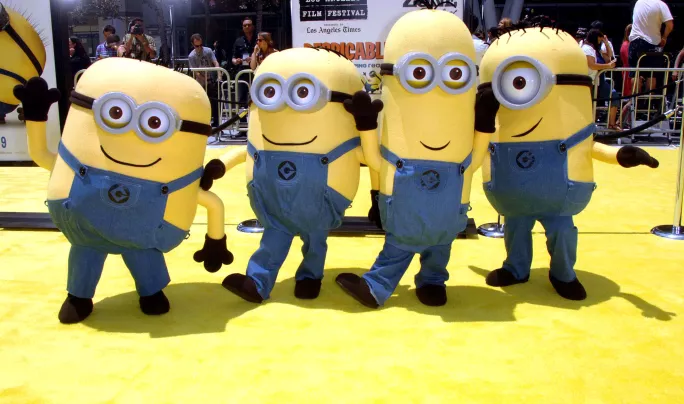“I’d welcome being called a minion,” says a Hampshire primary school teacher when I tell her the word has been crowned children’s “word of the year”.
“It would first and foremost be a great word to seize on for spelling tests and, secondly, it would show an impressive level of understanding of the political predicament of teachers that would be well beyond the child’s age.”
Other teachers may not be as welcoming, but according to BBC Radio 2 and the Oxford University Press (OUP), ‘minion’ is a word the education world is going to have to get used to. In an analysis of the 118,632 entries to this year’s Radio 2 500 words creative writing competition for children aged 13 and under, OUP found that use of the word ‘minion’ had gone up by 250 per cent compared with last year.
Challengers for the title included ‘ocelot’, ‘nether’, and ‘spawn’.
The prevalence of these words, according to the OUP, is down to students’ obsession with the fantasy worlds of Hollywood films and games like Minecraft. It credits the rise of ‘minion’, in particular, to the film Despicable Me, which features a cast of small, yellow creatures with goggles referred to as minions (as pictured above).
Jack Sloan, deputy head of Hanover Primary School in Islington, London, says children are more influenced by these media than ever before.
“We live in a time when children have fewer and fewer ‘real’ experiences,” he explains. “We are risk-averse and teach our children to fear the unknown. But children still crave adventure and danger, yet cannot access these things in the real world. I believe this is why fantasy in children’s literature and film has become so popular in recent years. I would be prepared to bet this genre featured highly in the competition, more highly perhaps than it would have done 15 years ago.”
So should teachers respond to the the findings of the competition by giving students more of these “real experiences”?
Jack certainly thinks so, with activities such as camping - as demonstrated in this video - singled out as a way of doing just that.
But what about the risk assessments? Many a good idea has unravelled and become irretrievably knotted amid the inane complexity of a health and safety form.
The example of West Rise Junior School in Eastbourne suggests that with a little effort this barrier can be overcome. The school has taken its students clay pigeon shooting and also tasked classes with looking after a heard of water buffalo in the past.
So teachers may wish to interpret the OUP findings as a call to action and grab their black biros to start filling in the forms that will permit them to take children out of their fantasy world and into real life.
Should more schools attempt this, next year the competition may throw up a few words that are more Bear Grylls than Despicable Me’s Gru - rather than a “minion”, the kids will be calling you the very apt “survivor” instead.
Is minion the word of choice in your classroom? Tell us what word would come top among your students in the comments section below
Picture credit: Alamy

